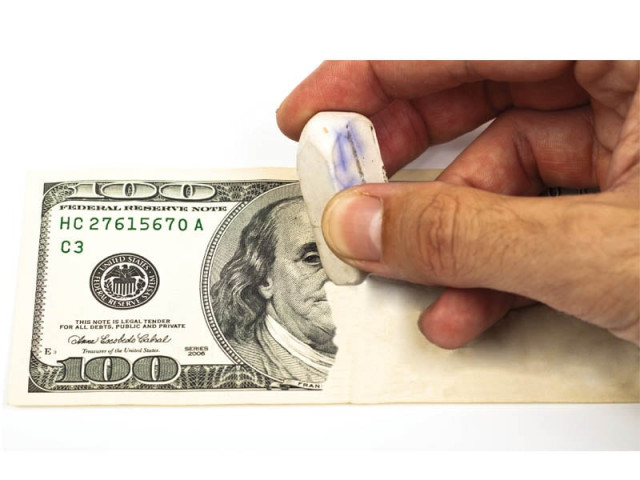Foreign exchange: Currency swap with China a bid to shore up, diversify reserves
The move is part of Beijing’s attempts to offer the Chinese yuan as an alternative to the US dollar.

The recently concluded currency swap agreement between Pakistan and China is a bid by Islamabad to shore and diversify its foreign currency reserves, allowing the government to borrow up to $1.5 billion under the pact, said sources familiar with the matter.
State Bank of Pakistan spokesperson Syed Wasimuddin confirmed to The Express Tribune that one of the purposes of the currency swap agreement was to ensure the availability of liquid foreign exchange reserves to allow the flow of foreign trade.
“One of the objectives of currency swap arrangement is short-term liquidity support,” said Wasimuddin. He declined to comment on exactly how much money the government would eventually borrow, nor did he state whether the government planned on drawing on what is essentially a credit facility during the remaining six months of the fiscal year that ends June 30, 2012.
A currency swap is a transaction that allows two countries to exchange the interest and principal payments on loans issued in two different currencies. For example, under the agreement signed between Pakistan and China on December 23, Pakistan can borrow up to 10 billion Chinese yuan while China can borrow up to Rs140 billion. Both loans would be issued simultaneously for the same period of time, but Pakistan would be able to pay the interest and principal in rupees whereas China would be able to pay back the loan in its own currency.
The advantage of this arrangement is that each country gains access to foreign exchange reserves, but retains the ability to pay back the liability associated with it in its own currency, thus limiting its exposure to exchange rate fluctuations.
Wasimuddin explained that the durations of the loans would be three months, six months or one year. However, the State Bank has declined for the last two weeks to comment on what interest rate Pakistan will have to pay on its loan and what it will be charging China.
Sources said that Pakistan would likely be charged a variable exchange rate that would likely be a few percentage points above the China’s benchmark Shanghai Interbank Offered Rate (Shibor), which currently hovers between 5.3% and 5.5% for short term loans.
China has so far concluded 14 such agreements, including the one with Pakistan. The agreements – worth about $161 billion, or 22% of China’s foreign trade – are part of Beijing’s wider efforts to promote the use of the Chinese yuan as an alternative currency to the US dollar. Other moves include allowing consumers in Hong Kong and New York to open yuan-denominated deposit accounts in Chinese bank branches outside mainland China. Beijing is also slowly allowing some yuan-denominated bonds to be traded outside its borders.
Under the agreement, because the SBP would now have reserves in Chinese yuan as well, Pakistani companies would be able to pay their Chinese counterparts in yuan, rather than US dollars as is currently the case, said sources familiar with the matter. Until now, Pakistan’s foreign currency reserves have been entirely in US dollars, thus making the agreement the first attempt by Islamabad to diversify its reserves.
The government has been increasingly worried about declining foreign exchange reserves, which have already declined by $1.6 billion in six months, or about 33% more than the finance ministry’s projections for the entire fiscal year.
Pakistan’s foreign currency reserves were around $18.3 billion in June 2011. The SBP estimates that they could go as low as $11 billion by June 2012, though the finance ministry’s projection of the decline is much lower. The anticipated current account deficit of 2.5% of the total size of the economy has already put pressure on the rupee, causing it to decline past an all-time low of Rs90 to the dollar.
Published in The Express Tribune, January 9th, 2012.



















COMMENTS
Comments are moderated and generally will be posted if they are on-topic and not abusive.
For more information, please see our Comments FAQ